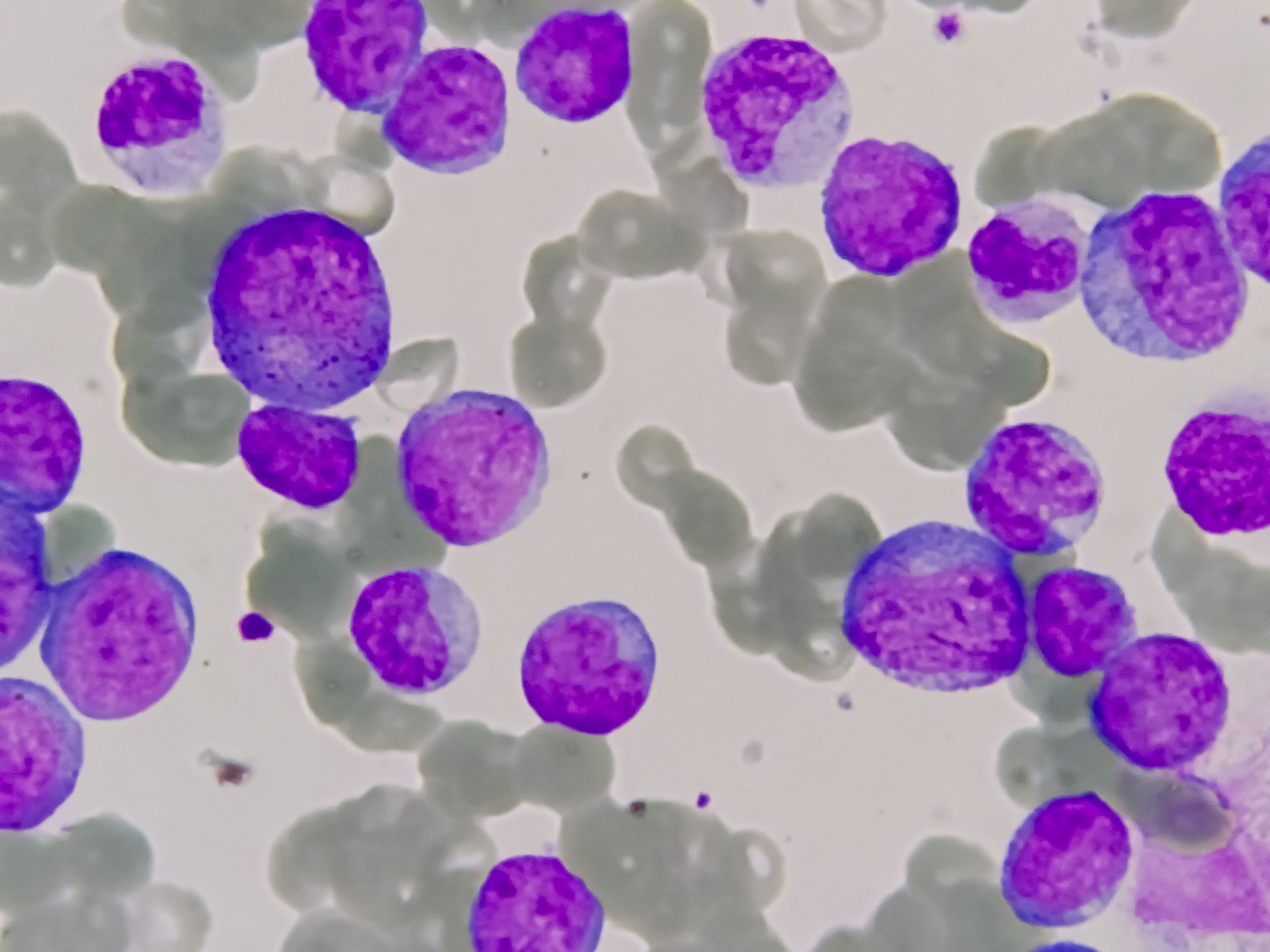FDA Grants Orphan Drug Designation to Novel Treatment for Acute Myeloid Leukemia
Ocifisertib (CFI-400945) is a first-in-class, novel PLK4 inhibitor that has been found to regulate centriole duplication in patients with acute myeloid leukemia.
Image credit: Arif Biswas | stock.adobe.com

Treadwell Therapeutics’s ocifisertib (CFI-400945) has been granted orphan drug designation by the FDA for the treatment of acute myeloid leukemia (AML).1 The first-in-class, novel PLK4 inhibitor has been found to regulate centriole duplication in patients with AML.
“The FDA’s decision to grant orphan drug designation, along with the previous FDA Fast Track designation for ocifisertib, underscores [our] dedication to addressing this patient population with few treatment options. Patients with relapsed and/or refractory AML—in particular TP53-mutated disease—suffer poor overall survival and represents a high unmet clinical need,” said Roger Sidhu, MD, acting CEO of Treadwell Therapeutics, in a press release.1
The PLK4 enzyme is typically overexpressed in cancer cells and has been associated with adverse survival outcomes. Inhibiting PLK4 has been found to intensify genomic instability in cancer cells, causing cell death. Ocifisertib has shown significant single-agent activity in both solid and liquid tumors.2,3
The FDA grants orphan drug designations to medications that are developed for the treatment, prevention, or diagnosis of a rare disease or condition affecting fewer than 200,000 individuals in the United States at the time in which the designation is awarded. In a Phase I trial, researchers were able to establish the safety and tolerability of ocifisertib in patients with advanced solid tumors.2
The trial investigators evaluated continuous daily oral dosing of ocifisertib by the incidence of dose-limiting toxicities (DLTs) observed across the first 28-day treatment cycle. Investigators enrolled 43 patients for the dose escalation phase, which increased from 3 mg to 96 mg per day, while nine patients were administered the 64 mg-dose in the expansion phase. The findings suggest that ocifisertib was well-tolerated at the 64 mg-doses in those with dose-dependent neutropenia, according to the investigators. After DLTs were observed at both the 96 mg and 72 mg doses, 64 mg was established as the recommended Phase II dose.2
Previously determined safety, efficacy, pharmacokinetics, and pharmacodynamics for ocifisertib are being confirmed in patients with relapsed or refractory AML after treatment with standard-of-care therapy in a Phase Ib and II trial. Further, researchers are examining the drug in patients with myelodysplastic syndrome and chronic myelomonocytic leukemia. The safety and tolerability of ocifisertib are being explored both as a monotherapy and in combination with azacitidine.1,4
The most common (>5%) treatment-related adverse events (TRAEs) in the Phase I trial were fatigue (37%), nausea (29%), diarrhea (21%), neutropenia (21%), anorexia (19%), vomiting (8%), dyspepsia (6%), hypomagnesemia (6%), and dehydration (6%). The TRAEs were deemed low grade and did not show a clear dose-dependent trend, other than for neutropenia.
“We look forward to advancing ocifisertib in partnership with investigators, regulators, patients and their families for those with limited treatment options in tough to treat AML,” Sidhu added in the press release.1
References
1. Treadwell Therapeutics. Treadwell Announces Ocifisertib, a First-in-Class PLK4 Inhibitor, has Received Orphan Designation from U.S. FDA for the Treatment of Acute Myeloid Leukemia. News release. February 20, 2024. Accessed February 22, 2024. https://www.businesswire.com/news/home/20240220180549/en
2. Veitch, Z.W., Cescon, D.W., Denny, T. et al. Safety and tolerability of CFI-400945, a first-in-class, selective PLK4 inhibitor in advanced solid tumours: a phase 1 dose-escalation trial. Br J Cancer 121, 318–324 (2019). doi:10.1038/s41416-019-0517-3
3. Novel targets. Treadwell Therapeutics website. Accessed February 22, 2024. https://treadwelltx.com/science/#our-toolbox
4. A Study of CFI-400945 Fumarate in Patients With Advanced Cancer. ClinicalTrials.gov identifier: NCT01954316. Updated January 17, 2024. Accessed February 22, 2024. https://clinicaltrials.gov/study/NCT01954316
Protecting Temperature-Sensitive Pharmaceuticals, Without Unnecessary Plastic Waste
March 24th 2025Advances in the life sciences are driving a significant increase in the number of temperature-sensitive pharmaceuticals. The packaging industry is meeting the moment with advances of its own, including high-performance, environmentally-friendly materials that allow life science companies meet stringent thermal requirements and ambitious CO2e reduction goals. In this episode, TemperPack’s CEO Peter Wells shares insights from working with life sciences to move to certified biobased, home compostable, and curbside recyclable shipping solutions.